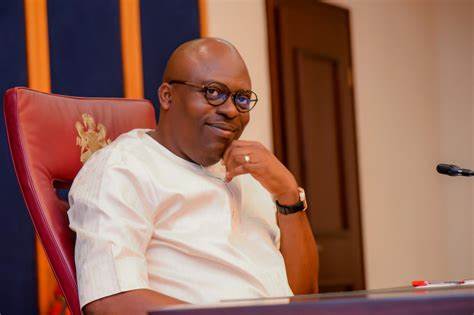As the controversial six-month emergency rule in Rivers State approaches its conclusion, anticipation builds across the oil-rich state over Governor Siminalayi Fubara’s imminent return to power, amid concerns about his ability to deliver on developmental promises.
Emergency Rule Background
President Bola Tinubu’s decision to suspend democratic institutions in Rivers State on March 18, 2025, came as a direct response to the escalating political crisis between Governor Fubara and his predecessor, Nyesom Wike, who currently serves as Minister of the Federal Capital Territory. The intervention saw retired Chief of Naval Staff, Vice Admiral Ibok-Ete Ibas, appointed as sole administrator to oversee the state’s affairs.
The emergency administration’s first major decision involved suspending all political appointees previously working under the Fubara government, effectively bringing normal democratic governance to a standstill.
Stalled Development Projects
Under Fubara’s initial leadership, Rivers State had witnessed the commencement of several ambitious infrastructure projects. These included the Trans-Kalabari Link Road, the Port Harcourt Ring Road, rehabilitation efforts for the Rivers State House of Assembly complex – which was destroyed by fire in October 2023 – and initiatives to revive the Soghai Farm in Tai Local Government Area.
However, the emergency rule period has seen minimal progress on these critical projects. Despite promises from the sole administrator to remobilize contractors, development activities across the state have largely remained dormant.
Citizens Voice Their Expectations
With democratic restoration on the horizon, Rivers State residents and political stakeholders have begun articulating their expectations for the returning governor.
Stephen Deegbara, an All Progressives Congress (APC) chieftain, emphasized the need for immediate action on abandoned infrastructure. “The governor must prioritize completing stalled road projects, ensuring civil servant promotions, and addressing the acute shortage of teachers in our schools,” he stated. Deegbara also called for unity and reconciliation, urging Fubara to “focus on governance and avoid those who profit from political crises.”
Port Harcourt-based journalist Olalekan Ige highlighted specific infrastructure concerns, particularly the need to resolve issues with the Ring Road project abandoned by Julius Berger and to address critical staffing shortages across schools, health institutions, and government agencies.
Governance Challenges Under Emergency Rule
The interim administration has faced criticism for its handling of basic governmental functions. Hon. Darlington Nwauju, another APC leader, expressed disappointment with what he termed “policy somersaults” during the emergency period.
“Even the fundamental task of paying salaries has become extraordinarily difficult under military administration,” Nwauju observed. “Governor Fubara will essentially need to restart from where he left off in 2023, as development has been completely frozen.”
Political analyst Dr. Obinna Nwodim echoed these concerns, noting that ordinary Rivers citizens have seen little tangible progress during the emergency rule period. “The suspension disrupted ongoing projects and contracts, creating a significant gap between current realities and what could have been achieved under normal democratic processes,” he explained.
Political Constraints and Controversies
Not all observers are optimistic about Fubara’s return. Public affairs analyst Obinwa Akanwa suggested that the governor’s political position may have been significantly weakened during his absence. “Fubara has been boxed into a corner politically, which may limit his effectiveness and the development progress residents can expect,” Akanwa warned.
Recent allegations have further complicated the political landscape. The Coalition for Justice and Democracy (CJD) has accused Governor Fubara of orchestrating a smear campaign against President Tinubu and sole administrator Ibas. The coalition, led by Comrade Raymond Aighona, dismissed claims about financial mismanagement during the emergency period as “baseless blackmail.”
According to the CJD, Fubara has been “sponsoring falsehoods and pushing forged documents” in what they characterized as “reckless vengeance” against the federal intervention that prevented “total political anarchy” in Rivers State.
Looking Ahead
As Rivers State prepares for the restoration of democratic governance, questions remain about the governor’s ability to navigate the complex political landscape while delivering on developmental promises to the state’s residents. The coming weeks will likely prove crucial in determining whether the return to civilian rule can reinvigorate the state’s stalled progress or whether political tensions will continue to hamper governance effectiveness.
The transition period will serve as a critical test of democratic resilience in one of Nigeria’s most economically significant states, with implications extending beyond Rivers State’s borders to the broader Nigerian political landscape.



















